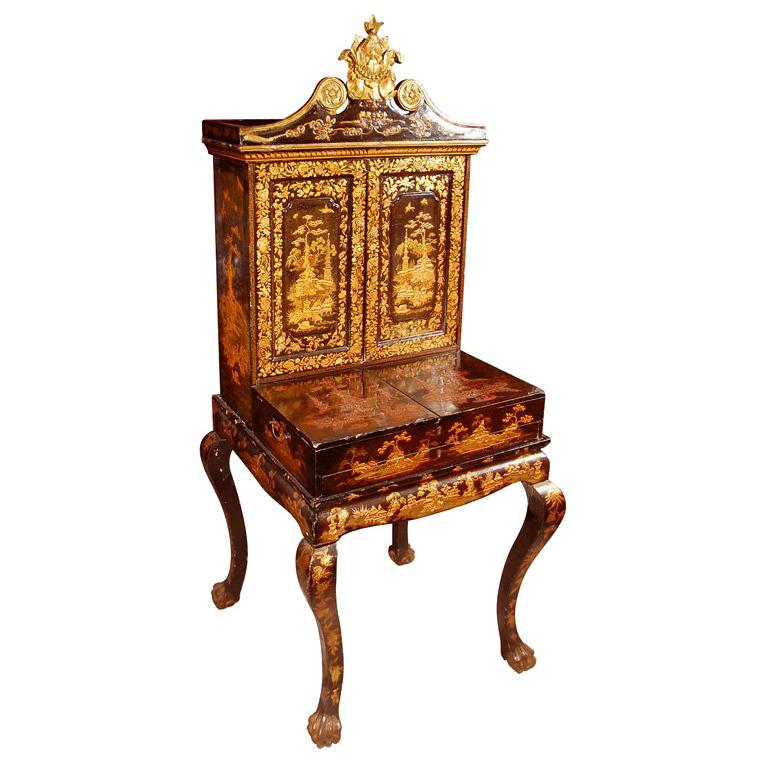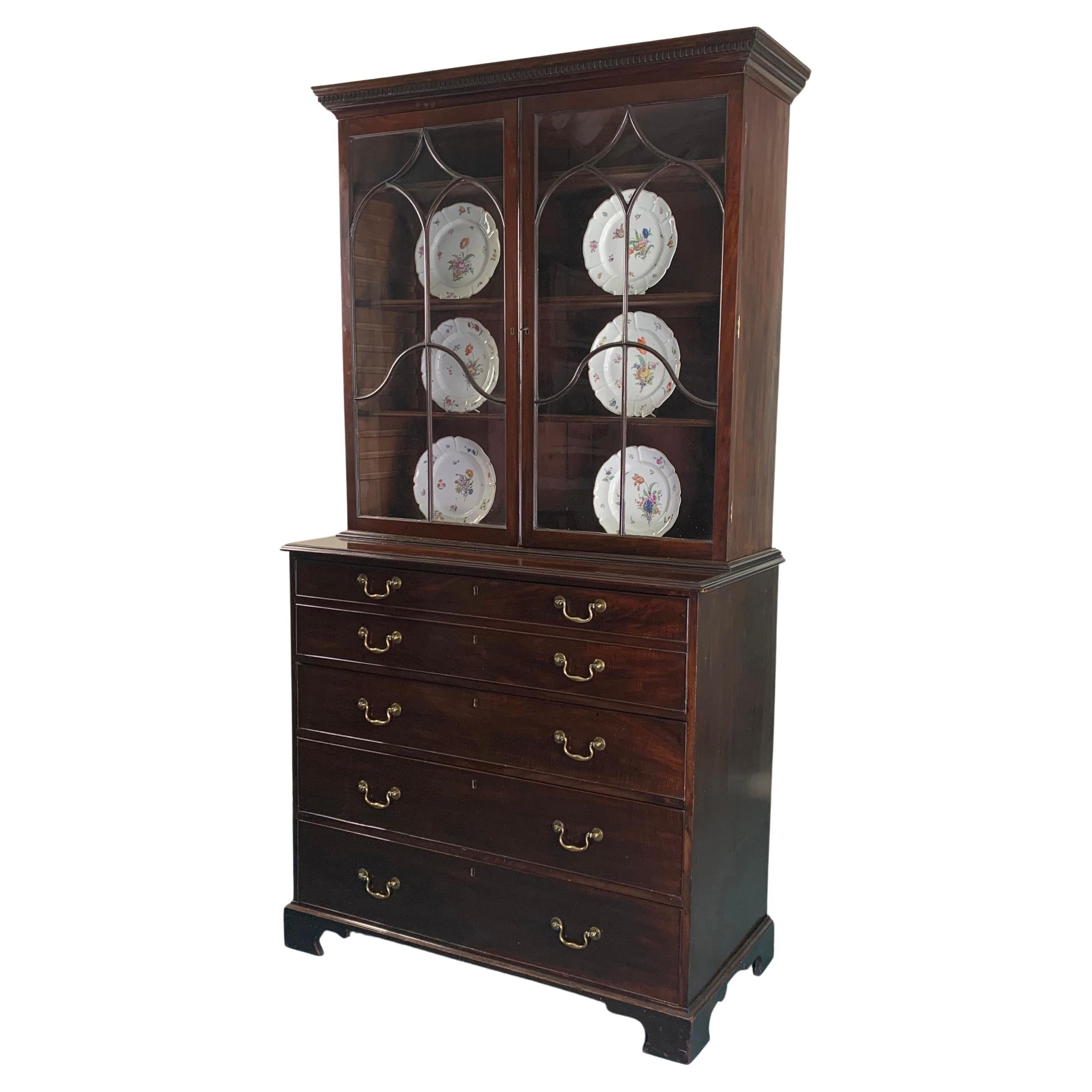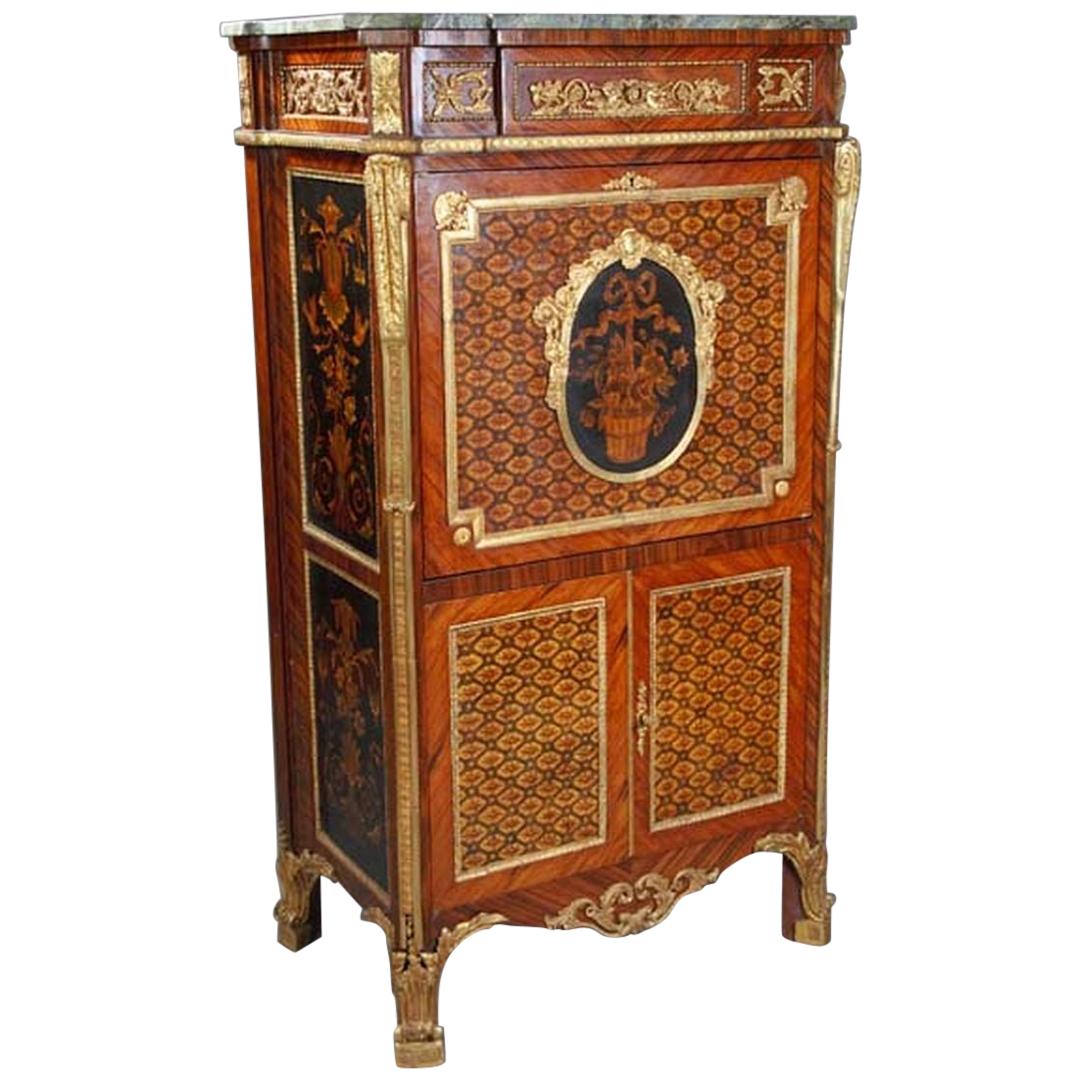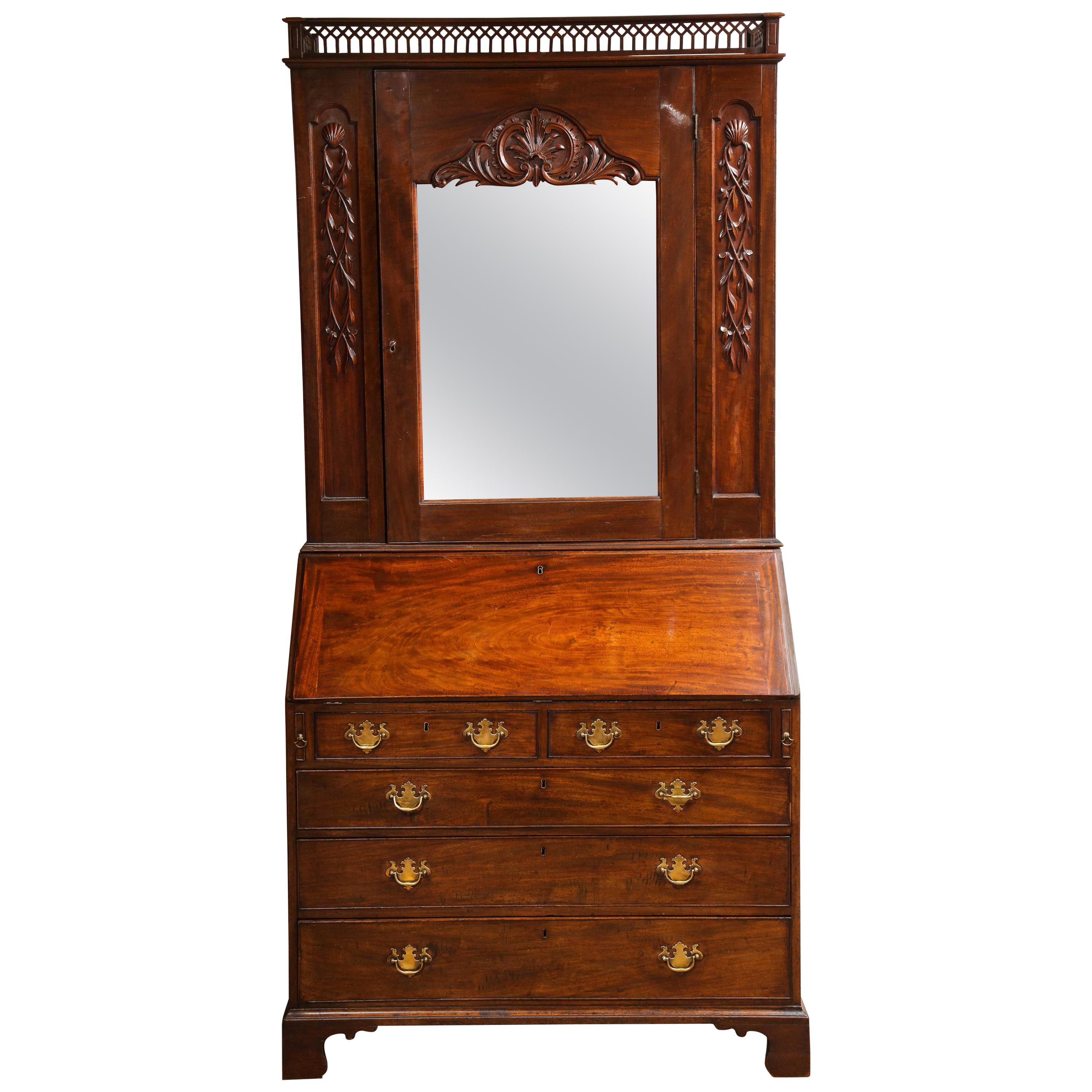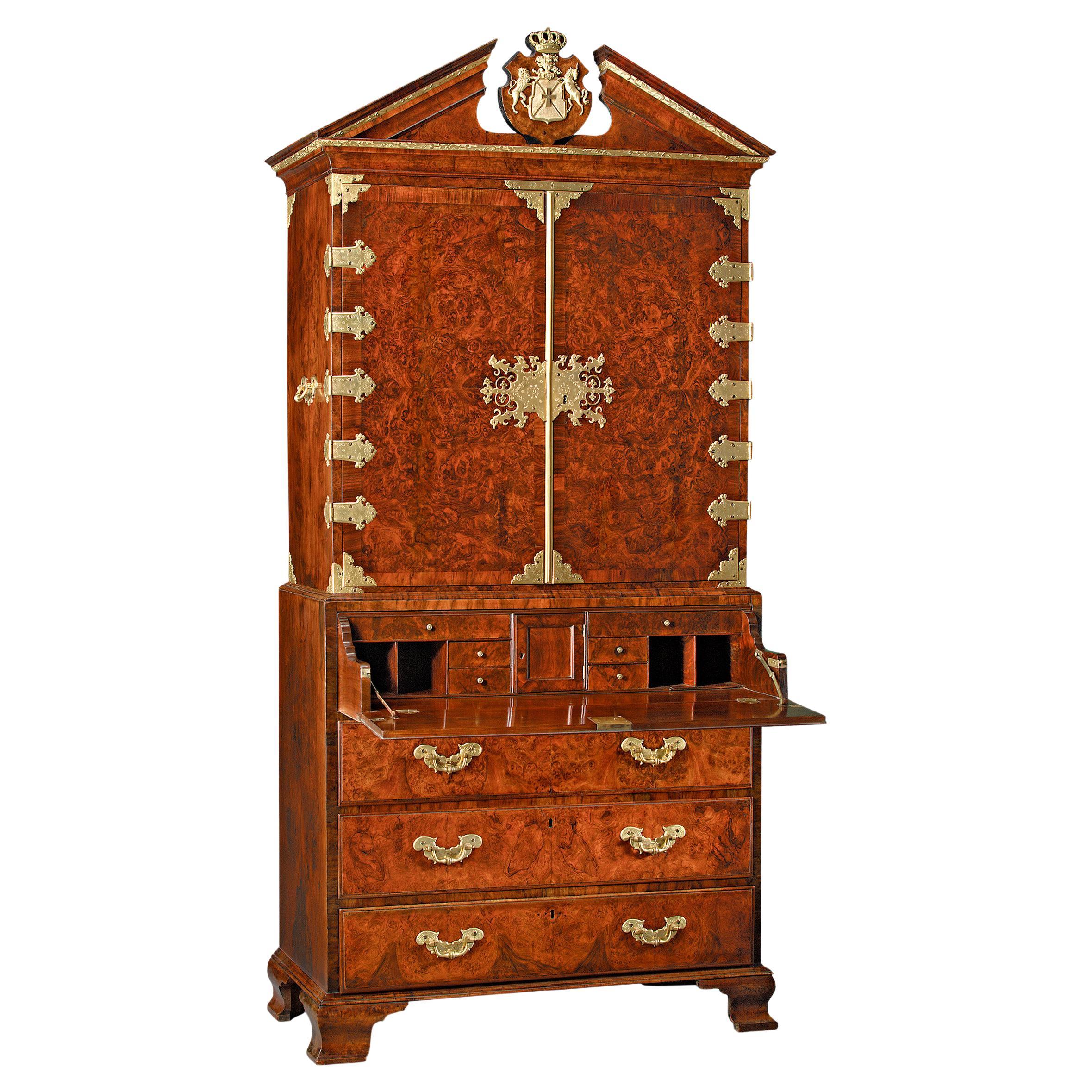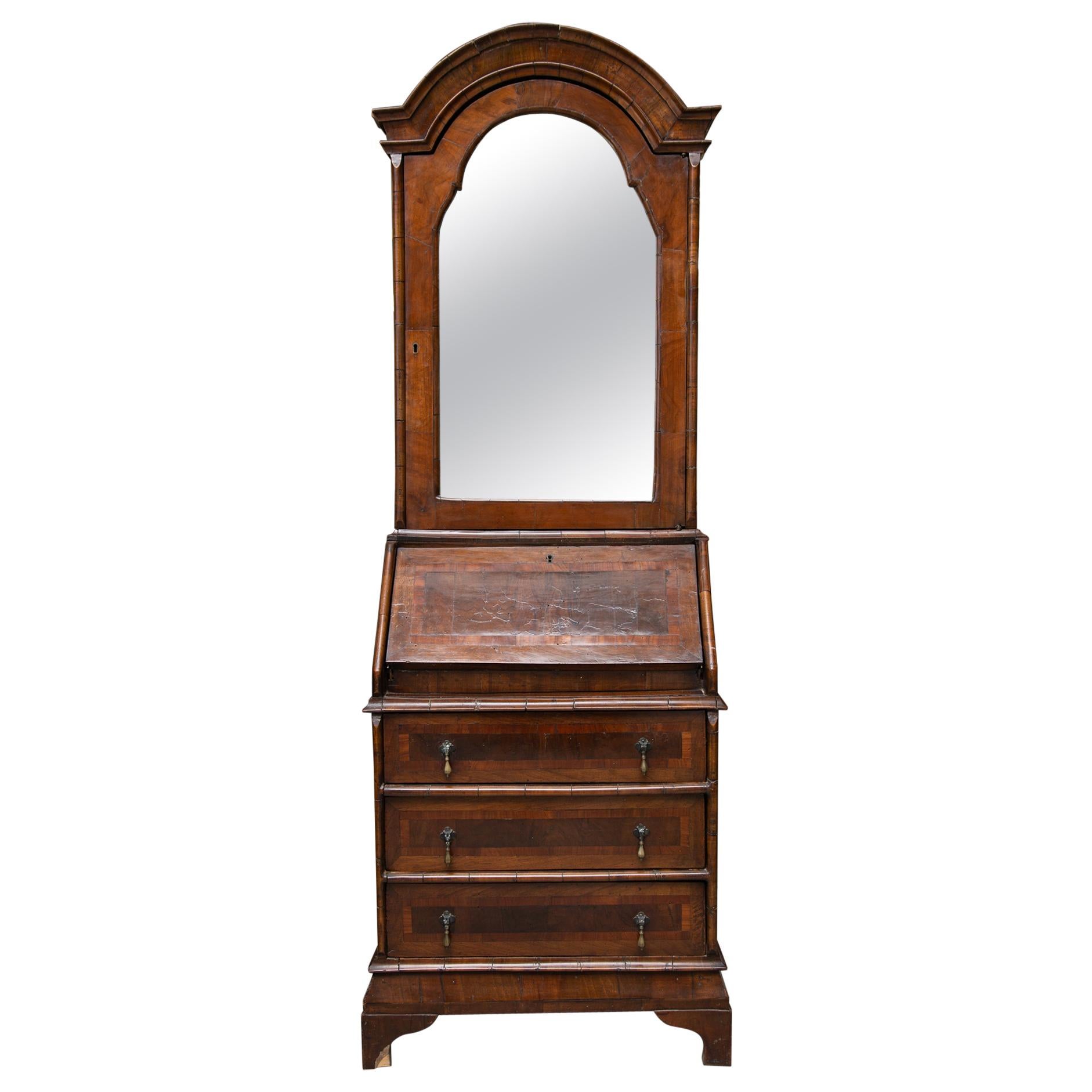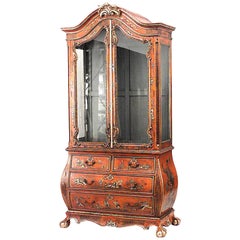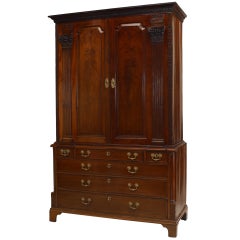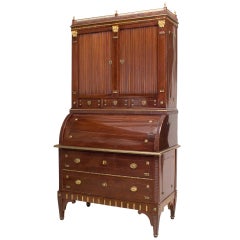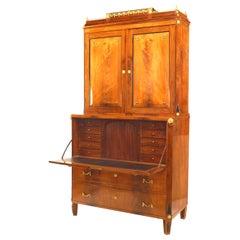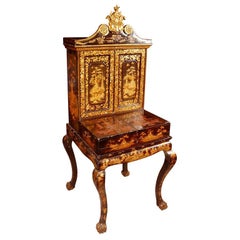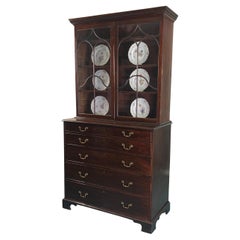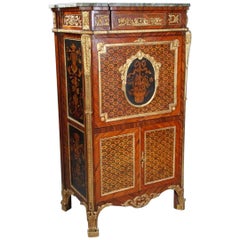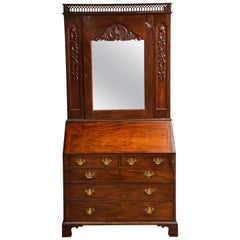Items Similar to English Georgian Style Secretary Cabinet
Want more images or videos?
Request additional images or videos from the seller
1 of 7
English Georgian Style Secretary Cabinet
$22,500
£16,965.10
€19,549.91
CA$31,213.58
A$34,974.65
CHF 18,205.64
MX$427,861.07
NOK 231,086.88
SEK 218,258.79
DKK 145,944.10
Shipping
Retrieving quote...The 1stDibs Promise:
Authenticity Guarantee,
Money-Back Guarantee,
24-Hour Cancellation
About the Item
English Georgian style (19th century) red lacquered Chinoiserie decorated slant front secretary cabinet.
- Dimensions:Height: 89 in (226.06 cm)Width: 38 in (96.52 cm)Depth: 22 in (55.88 cm)
- Style:Georgian (Of the Period)
- Materials and Techniques:Wood,Lacquered
- Place of Origin:
- Period:
- Date of Manufacture:Unknown
- Condition:Wear consistent with age and use.
- Seller Location:Queens, NY
- Reference Number:Seller: 035995B1stDibs: LU977911618653
About the Seller
4.9
Recognized Seller
These prestigious sellers are industry leaders and represent the highest echelon for item quality and design.
Platinum Seller
Premium sellers with a 4.7+ rating and 24-hour response times
Established in 1939
1stDibs seller since 2013
979 sales on 1stDibs
Typical response time: <1 hour
- ShippingRetrieving quote...Shipping from: Long Island City, NY
- Return Policy
Authenticity Guarantee
In the unlikely event there’s an issue with an item’s authenticity, contact us within 1 year for a full refund. DetailsMoney-Back Guarantee
If your item is not as described, is damaged in transit, or does not arrive, contact us within 7 days for a full refund. Details24-Hour Cancellation
You have a 24-hour grace period in which to reconsider your purchase, with no questions asked.Vetted Professional Sellers
Our world-class sellers must adhere to strict standards for service and quality, maintaining the integrity of our listings.Price-Match Guarantee
If you find that a seller listed the same item for a lower price elsewhere, we’ll match it.Trusted Global Delivery
Our best-in-class carrier network provides specialized shipping options worldwide, including custom delivery.More From This Seller
View AllEnglish Georgian Style Lacquered Chinoiserie Cabinet
Located in Queens, NY
English Georgian-style (19/20th Century) red lacquered chinoiserie design cabinet with bombe shaped base with drawers and 2 glass doors on upper section.
Category
Antique Late 19th Century British Georgian Cabinets
English Georgian Mahogany Cabinet
Located in Queens, NY
English Georgian (18th Century) mahogany cabinet with a lower section having 4 drawers and a 2 door upper section with carved pilaster columns and lat...
Category
Antique 18th Century English Georgian Cabinets
Materials
Brass
Russian Mahogany Secretary Cabinet
Located in Queens, NY
Russian (Possibly Baltic) (18/19th Century) mahogany & bronze trim secretary cabinet with a roll top centering a 2 tambour door top and chest with 2...
Category
Antique 18th Century Unknown Baltic Secretaires
Materials
Brass
Russian Neoclassic Mahogany Secretaire
Located in Queens, NY
Russian Neoclassic (Late 18th/ Early 19th Century) ormolu mounted ebonized and mahogany secretaire cabinet with a Pair of doors above a fitted fall...
Category
Antique Early 19th Century Russian Neoclassical Secretaires
Materials
Ormolu
English Georgian Mahogany Secretary
Located in Queens, NY
English Georgian mahogany secretary cabinet with a bottom section with drawers and an upper section with 2 lattice glass doors
Two drilled h...
Category
Antique 19th Century English Georgian Secretaires
Materials
Mahogany
English Chinoiserie Highboy Chest of Drawers
Located in Queens, NY
English Georgian style (18/19th Century) highboy chest in two sections with painted Chinoiserie lacquer figural scenes, the top section features two top ...
Category
Antique 19th Century Georgian Cabinets
Materials
Lacquer
You May Also Like
19th c. Georgian Style Secretary
Located in Los Angeles, CA
England: Georgian style black lacquered Chinese export small secretary with gilt figural scenes
Category
Antique 19th Century English Secretaires
Materials
Giltwood, Wood
Price Upon Request
Georgian Secretaire Bookcase
Located in Folkestone, GB
A fine example of a late 18th century mahogany secretaire bookcase. Original handles and locks. The dentil cornice above attractively glazed, astragal-doors. The lower half with a double, fully fitted secretaire drawer and three further long drawers, all with original handles and standing on original, shaped bracket feet.
A classical and elegant piece of traditional English country house furniture...
Category
Antique Early 19th Century English Georgian Bookcases
Materials
Mahogany
$3,863 Sale Price
22% Off
20th Century Unique French Secretary in Louis XVI Style
Located in Berlin, DE
Various veneer on solid wood. Built by the Ebenisten Jean Henri Riesener. High rectangular body. In the front two doors. Behind the writing board is an architecturally richly structu...
Category
20th Century French Secretaires
Materials
Wood
Irish Georgian Secretary
Located in Greenwich, CT
Fine and unusual 18th century Irish mahogany bureau bookcase, the pierced gallery top with Gothic details, the pilasters and door with rich and crisply carved shell and foliate desig...
Category
Antique 1750s Irish Georgian Secretaires
Materials
Mercury Glass, Mahogany
$16,900
King George I Ambassadorial Secrétaire-Cabinet
Located in New Orleans, LA
This highly important secrétaire-cabinet was crafted for and specially ordered by King George I for the British Ambassador to Russia. From its craftsmanship and materials to its exceptional artistry, it is a work of royal and historic significance that exudes power in each and every detail. The broken pediment at its apex features the simplified royal coat of arms bearing the king’s crown, while the interior is adorned by portraits of the British Royal Family. Placed within the ambassador’s St. Petersburg home, this entirely unique piece of furniture would have been a potent reminder of England's grandeur and political importance.
Relations between England and Russia during this period were at an all-time high. Peter the Great had traveled to England in 1698 as part of his widely known “Grand Embassy” tour, wherein he attempted to gain foreign support against the Ottoman Empire. He spent a period of nearly four months there, meeting with King William III and his court on numerous occasions. Noted academic Arthur MacGregor wrote concerning the impact of the trip, “For two decades following Peter's visit, British influence in Russia reached a peak. It manifested itself in social custom, in craft practice and in ships and naval organization... it reached a significant sector of the population before relations cooled once again and the two nations pulled back from this era of unprecedented cordiality.”
First and foremost, however, it is a reminder of British might and influence. By the reign of King George I, England had come into its own as a world power. Unique in its design, this cabinet is a reflection of the country’s might. It is crafted from the highest-quality solid walnut and burr walnut adorned by gilded lock plates and engraved hinges. The presence of ormolu at its apex and lining the doors was a rarity for this period, and its addition makes manifest the importance of the design.
The outer doors open to reveal multiple interiors, including fifteen separate drawers around a central cupboard; the cupboard doors each bear mezzotint portraits of George I and his father, Ernest Augustus, Elector of Hanover. An etching after the portrait of George I dating to circa 1716 is in London’s Royal Academy. A second, inner pair of doors are adorned by mezzotints of the Prince and Princess of Wales (later Queen Caroline and George II), which are both after portraits by Sir Godfrey Kneller dated 1716 in the Royal Collection. A final portrait is revealed on the very interior of the cabinet, where a mezzotint of Frederick, Anne, Amelia and Caroline, children of the Prince of Wales, resides. An etching (circa 1715-1720) after this portrait can be found in the National Portrait Gallery (London).
Apart from its abundance of royal portraiture, the cabinet features stunning painted decoration, including floral designs as well as clouds, birds and trees in a bucolic motif reminiscent of Eden. Its lower portion is a study in both form and function, featuring a fitted secrétaire-drawer above three additional drawers for storage. The cabinet appears in The Shorter Dictionary of English Furniture by R. Edwards from 1964, a text that is regarded as the bible of British furniture design. Edwards describes it as a “writing cabinet...given by George I to the British Ambassador at the Russian court.”
The cabinet was likely made for the 18th-century German diplomat and writer Friedrich Christian Weber, who represented English interests at the Russian court from 1714 until 1719. Although Weber’s tenure as ambassador was relatively short, while in St. Petersburg, he authored his account entitled Das veraenderte Russland (The Present State of Russia), which was published in three volumes in 1721, 1739 and 1740. It may, however, also have been made for George Douglas, 2nd Earl of Dumbarton, who served as ambassador alongside Weber in 1716. Diplomatic relations ceased between the two countries in 1721.
In 1928, the cabinet appeared for sale at the International Exhibition of Antiques & Works of Art in Olympia. It had previously been in the collection of the Woltner family of Bordeaux, the celebrated vintners who owned the estate Château Laville Haut-Brion and produced wine of the same name. According to the family, Monsieur Woltner was given the cabinet as a gift from an aunt who lived in Russia for many years. After leaving the Woltner collection, the cabinet was acquired by William Berry...
Category
Antique 18th Century English Georgian Secretaires
Materials
Brass
Early 19th Century George l Style Secretary
Located in WEST PALM BEACH, FL
This is a charming George l style walnut diminutive secretary. The domed cornice over a conforming cabinet door has a mirror plate. The bottom section contains a drop-front opening t...
Category
Antique Early 19th Century English Georgian Secretaires
Materials
Mirror, Walnut
More Ways To Browse
Red Secretary
English Chinoiserie Cabinet
Red Lacquer Chinoiserie Cabinet
Georgian Secretary
Antique Georgian Secretaire
Chinoiserie Secretary
Chinoiserie Secretary Cabinet
English Georgian Secretary
Red Lacquer Secretary
Red Chinoiserie Secretary
Century Furniture Secretary
Secretary Cabinets
Antique Secretary
Antique Secretaire Furniture
Secretary Furniture Antique
Secretary Desk With Cabinet
Secretaire Desk Antique
Antique Desks And Secretaries Desks And Secretaries
